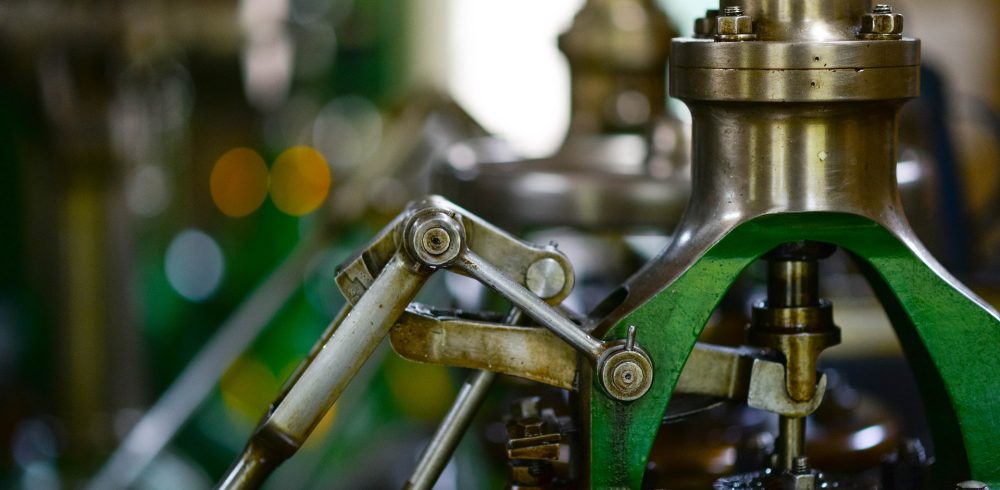Super Deduction and Asset Procurement : Andrew Millington and Tristan Pulford of Finch Consulting explore how the recent introduction of the “super-deduction” tax incentive has provided a much-needed stimulus to support the recovery in one of the UK’s key economic sectors. With the expected increase in investment in qualifying assets, consideration must be given to any purchased assets on their effectiveness in the production process, their operational efficiencies and their compliance with health and safety regulations. If this is not done the super-deduction becomes a potential waste.
There is a positive feeling in the manufacturing industry, with production outputs increasing due to a general sentiment of improving business confidence across many sectors. This is supported by growth forecasts expecting the economy to recover to pre-COVID levels by the middle of 2022.
In amongst all the difficulties faced in the last year or more, proactive businesses have taken the opportunity to improve their internal operations and, where possible, strengthen cash reserves to promote financial stability and sustainability.
When considering these factors, many businesses will be moving into a phase of longer-term investment, but the introduction of the “super-deduction” has been put in place to accelerate these plans, so asset procurement is now part of business’ shorter-term strategy to take advantage of this significant incentive.
The scheme is only in place for two years, and with procurement processes sometimes needing up to a year to specify and commission, time is of the essence in establishing, planning and executing asset management and procurement plans.
However, engineering assets carry risk; the equipment and processes must be safe, reliable and efficient if they are to generate sustainable, profitable revenue and provide a good return on investment (ROI).
Breakdowns, accidents, poor product quality, environmental breaches and inadequate management systems are all examples of events that can put business reputation and investment capital at risk — and potentially attract huge fines. These fines can be in the millions now that they are based on company revenues.
“The average level of fine has also shown an increase since the sentencing guidelines came into effect, rising from £27,000 per conviction in 2014/15 to £110,000 per conviction in 2019/20p”[1].
It will be more cost-effective to establish and manage these risks proactively by ensuring that the asset specification conforms with all relevant legislation and has the right systems and processes around it to operate in a safe way within its new environment.
With the correct planning and engagement these risks can be controlled, such that the assets purchased can achieve a longer, safer, and more efficient life span. It is vital however that steps are taken as early on in the process as possible to mitigate these risks, as resolving some of these once it has arrived on your premises will incur more costs, which may not be covered by the “super-deduction”.
Finch has been involved with a vast number of projects; from the specification stage, where the requirements of the manufacturer providing the asset are set, right down to checking the machinery for compliance after it has arrived at the facility. Our experience across the decades has shown that, although potentially counter-intuitive, it is almost always a more cost-effective approach to invest in getting advice as early as possible in the project, than it is remedying it after it has been delivered.
Increasingly, it is important to consider the whole life cycle of any asset for both operational reasons in this uber-competitive world and environmental reasons, as governments push to reduce emissions and increase recycling. Although this may seem like an additional layer of paperwork, if embraced it can save on operational expenditure, and increase efficiencies across the lifecycle of the asset.
For this reason, it’s important to consider the asset management plan of any asset as early as possible, which includes items such as maintenance, critical spares and consumable items. Frequently there are multiple methods to producing a machine, some of which will require more frequent maintenance than others, but you may also want to consider more frequent maintenance which requires less time. All of this comes into your asset management planning.
In summary, the “super-deduction” provides a generous but very short-term incentive to invest in capital assets. Whilst the cash benefits of the allowance will be attractive, it is essential that they are protected by ensuring that the purchase is planned and specified effectively, and Finch’s vast experience in assisting clients with similar matters ensures that any potential risks are mitigated so these benefits can be fully enjoyed.
____
For more information about Super Deduction and Asset Procurement please contact: Tristan.pulford@finch-consulting.com
[1] Reference: https://www.hse.gov.uk/statistics/enforcement.pdf
Manufacturing & Engineering Magazine | The Home of Manufacturing Industry News













